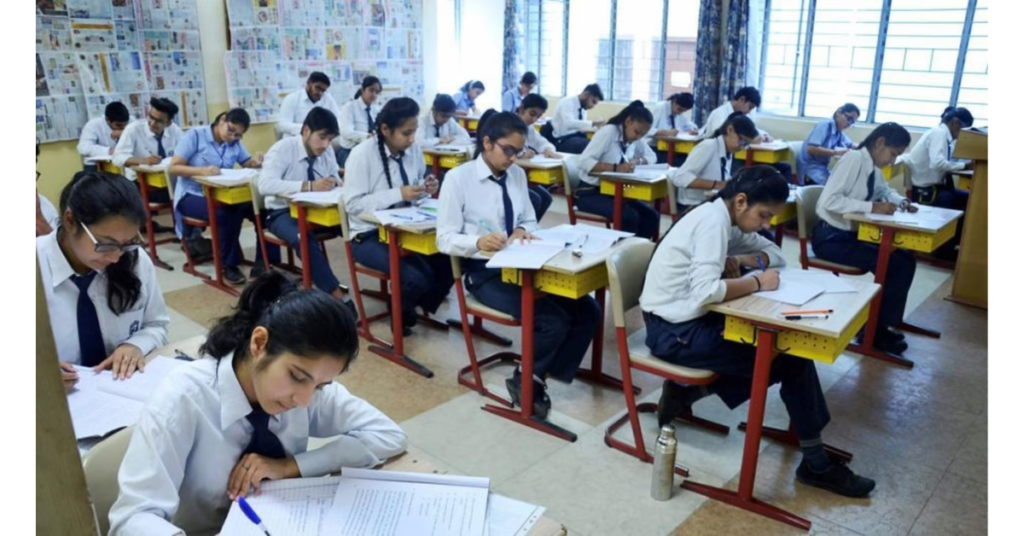CBSE to hold Class 10 board exams twice a year starting 2026, giving students a second chance to improve scores in key subjects without added stress
In a significant shift aimed at easing academic pressure and giving students more flexibility, the Central Board of Secondary Education (CBSE) has officially approved the twice-a-year board exam format for Class 10 students, starting from the 2026 academic session. This decision aligns with the National Education Policy (NEP) 2020, which advocates for student-friendly, low-stakes assessments.
The announcement was made by CBSE Controller of Examinations Sanyam Bhardwaj on June 25, 2025. He emphasized that the new system has been carefully designed to support students’ well-being and allow them to perform at their best, without the burden of a single high-stakes exam defining their academic performance.
What Changes for Class 10 Students?
Under the new framework, students will have the option to appear for the board examination twice in an academic year—once in February and again in May.
- The February exam will be considered the main board exam and will be mandatory for all students.
- The May exam will serve as an optional improvement test, giving students a chance to better their scores in any three of five major subjects, which include:
- Science
- Mathematics
- Social Science
- Language I
- Language II
This format is being introduced with the understanding that every student learns and performs differently. “One exam should not define a student’s capability or future,” said a senior CBSE official. “We want to make exams more about learning and less about pressure.”
Results and Internal Assessments
According to the plan, results for the February exams will be released in April, while results for the May improvement exams will be declared in June. Students who score satisfactorily in February may choose not to appear in May, while those seeking to improve can take another shot without having to repeat an entire academic year.
It is important to note that internal assessments and practical exams will only be conducted once per subject, and those scores will carry over to both exam sessions. This avoids duplication and additional stress for students.
Winter-Bound Schools Get Flexibility
The CBSE has also considered schools in colder, winter-bound regions like the Himalayan states. These schools will be given the flexibility to participate in either of the two exam sessions, based on what best fits their academic calendars. This inclusive approach is seen as a step forward in making education policy more geographically adaptable.
Why This Matters?
The move to a biannual exam schedule follows a period of public consultation. Draft guidelines were released earlier this year, inviting feedback from teachers, school administrators, parents, and education experts. The overwhelming sentiment supported reducing the pressure of “one-shot” exams and introducing a system that values learning over rote memorization.
The NEP 2020 encourages such exam reforms, aiming to make learning more experiential, joyful, and less exam-centric. By giving students an opportunity to learn from mistakes and improve, CBSE hopes to instill a more growth-oriented mindset among young learners.
Looking Ahead
This change marks a turning point in how board exams are viewed in India. It moves away from the “do-or-die” culture and toward a model that treats exams as stepping stones, not final judgments. Schools will begin preparing students and teachers for this new system over the next academic year, with training modules, revised timetables, and awareness campaigns.
Parents and students have largely welcomed the reform. “This is a big relief,” said Priya Kapoor, a parent from Delhi. “It gives our children room to breathe and a second chance without stigma.”

CBSE’s decision to hold Class 10 board exams twice a year is more than a scheduling change—it’s a cultural shift in Indian education. It reflects a system that’s evolving to prioritize student wellness, performance diversity, and lifelong learning. And most importantly, it ensures that no single exam day dictates a student’s future.
Also Read: News Reading Now Mandatory in Himachal Government School Assemblies –